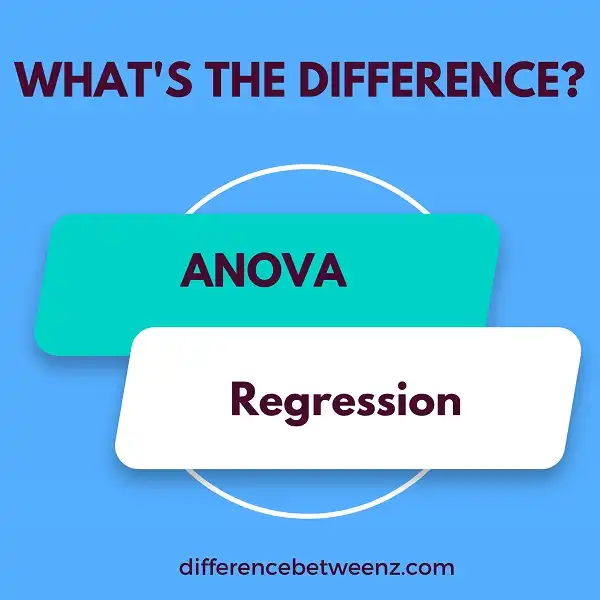ANOVA and regression are both analysis techniques used to help understand the relationships between different factors and variables. However, they are used for different purposes and achieve different results. In this post, we will take a look at the difference between ANOVA and regression, and when each is most applicable.
What is ANOVA?
ANOVA is a statistical technique that stands for Analysis Of Variance. ANOVA is used to compare means between two or more groups. The ANOVA test is used to see if there is a significant difference between the means of two or more independent groups. The ANOVA test is used to compare means between two or more groups. ANOVA is used to see if there is a significant difference between the means of two or more independent groups. When you have multiple groups and your dependent variable is continuous, ANOVA is the statistical test to use.
ANOVA can be used with categorical independent variables with more than two levels and continuous dependent variables. The goal of ANOVA is to find out whether there are any significant differences between the means of several groups. If there are no significant differences, we say that the means are not significantly different from each other.
What is Regression?
Regression is a statistical technique used to identify the relationships between different variables. In regression analysis, the dependent variable is typically referred to as the “criterion variable,” while the independent variable(s) are known as the “predictor variable(s).” The goal of regression analysis is to find the best fitting line or curve that describes the data points on a scatterplot. This line or curve is known as the regression line or curve. Regression analysis can be used to predict future values of the criterion variable, based on values of the predictor variable(s). For example, regression analysis could be used to predict someone’s grade point average (GPA) based on their SAT score.
Difference Between ANOVA and Regression
ANOVA and regression are two of the most commonly used statistical methods. Both ANOVA and regression allow you to test hypotheses about relationships between variables. ANOVA tests the hypothesis that there is no difference between the means of two or more groups, while regression tests the hypothesis that there is a linear relationship between two or more variables. ANOVA is best suited for the testing difference between means, while regression is better suited for testing relationships between variables.
ANOVA is also more powerful than regression when there are more than two groups, while regression is more powerful when there is a smaller number of observations. In general, ANOVA is more suitable for experimental data, while regression is more suitable for observational data. When choosing between ANOVA and regression, it is important to consider the type of data you have and the hypotheses you want to test.
Conclusion
The purpose of this blog post was to explain the difference between ANOVA and regression. We hope that after reading this post, you have a better understanding of each method and when it should be used.


